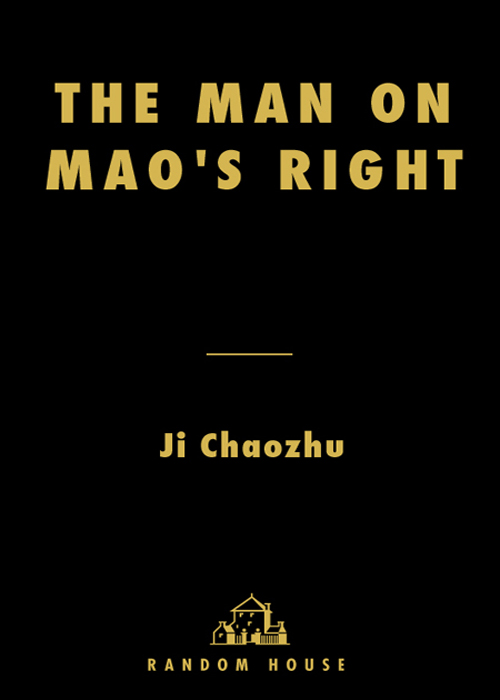
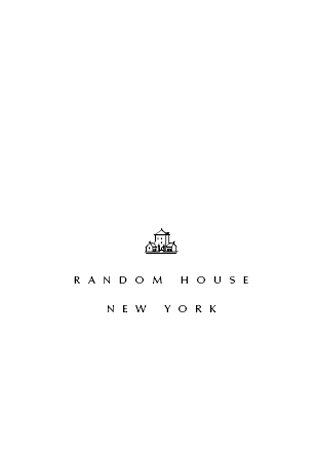
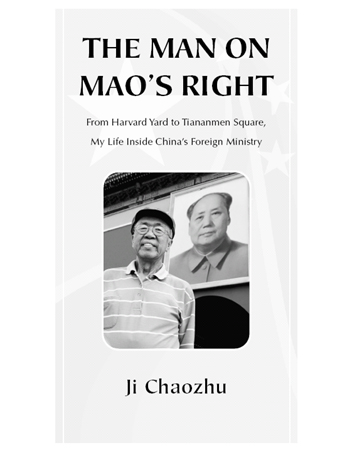
Contents
For Wang Xiangtong
CROSSING THE YELLOW RIVER TO CLEAR RIVER DISTRICT
My boat adrift on a vast river, heaving water spreading into far shores of sky,
skys deep swells break suddenly open and a citys ten thousand homes appear.
Further on, I glimpse the markets again, hints of mulberry and hemp out beyond,
then gaze back to my homeland: a flood brimmed boundless into cloud and mist.
WANG WEI, eighth-century Chinese poet
Preface
 Books that purport to tell the inside story of Chinas recent past range from wrenching tales of suffering during the Cultural Revolution, to speculative or even salacious biographies of Mao, to serious works of history. My story is none of those, yet it includes aspects of all of them.
Books that purport to tell the inside story of Chinas recent past range from wrenching tales of suffering during the Cultural Revolution, to speculative or even salacious biographies of Mao, to serious works of history. My story is none of those, yet it includes aspects of all of them.
Yes, my family and I suffered during the Japanese aggression, the civil war between the Communists and the Nationalists, the Anti-Rightist Campaign, the Great Leap Forward, the Great Proletarian Cultural Revolution, and all the political purges and economic upheavals that swept China as it struggled to define its role as a sovereign nation in a modern world.
And it is true that I witnessed or was privy to much of the political and personal machinations that took place behind the scenes as certain leaders of our government jockeyed for power and privilege.
And finally, I was an eyewitness to an astonishing number of historic events, rubbing shoulders and sometimes becoming casual with a long list of world leaders, including six presidents of the United States.
But, unlike some biographers of Mao, I decline to pass judgment. Let the facts speak for themselves. Mao was indisputably the father of modern, independent Chinaour countrys George Washington, except he was truly godlike in our hearts. While he was a populist who led a people away from thousands of years of feudalism and foreign domination, his catastrophic mistakes and failures have been well documented.
Unlike many credible and moving accounts of our long, dark decadethe Cultural RevolutionI can only report my experience as this terrible epoch wove itself into the fabric of my daily life and career. However, I think it serves history well to see this period through the eyes of one who experienced life inside the crucible.
I am unqualified as a true historian. Rather than studying China, I spent more than four decades in its service, advancing from a note-taking translator at the negotiating table during the Korean conflict to my final posting as an under secretary-general of the United Nations.
Even if I had wanted to make a historical record of my years in government, keeping diaries and journals was discouraged, especially in the Foreign Ministry. I have relied largely on recollection; the excellent memory and superior intelligence of my wife of fifty years, Wang Xiangtong; and the observations of the many colleagues and acquaintances with whom I worked or crossed paths.
I sometimes think of myself as having been a flea on the collar of eventsboth historically momentous and profoundly human. In telling this tale I have also relied on others, such as Henry Kissinger, whose friendship I continue to enjoy, as well as numerous other historical sources that I deemed reliable or objective. Where appropriate, I have noted those sources, but I have tried to avoid weighing this story down with ponderous footnotes and strings of exotic-sounding Chinese names and places.
This is the story of an ordinary man on an extraordinary journey during a pivotal period in world history. What may be most surprising to many readers is how much China and the Chinese peoplegeopolitics notwithstandinghave in common with the rest of the world.
JI CHAOZHU
Beijing, 2008
Authors Note
 The book you hold in your hands began with a near-death experience, one of many I survived during my four-plus decades in government service. I had just completed five years as under secretary-general of the United Nations, four years as Chinas ambassador to the Court of St. Jamess, and thirty-six years working with Chinas top leaders. I had logged millions of air miles crisscrossing the globe, meeting kings, presidents, and prime ministers of every political stripe and color.
The book you hold in your hands began with a near-death experience, one of many I survived during my four-plus decades in government service. I had just completed five years as under secretary-general of the United Nations, four years as Chinas ambassador to the Court of St. Jamess, and thirty-six years working with Chinas top leaders. I had logged millions of air miles crisscrossing the globe, meeting kings, presidents, and prime ministers of every political stripe and color.
Having reached my sixty-seventh birthday, I was looking forward to putting all I had learned to work, in some new capacity. Before I left New York, I had to decline with regret offers from friends and private think tanks to stay and enjoy a comfortable semi-retirement. I was flattered, but no enticement could dissuade me from returning to the nest.
I arrived back in China eager for a new assignment or challenge. But none presented itself and I grew frustrated. The sudden transition from center stageone of my last speeches was before an audience of six thousand at the Kremlinto inactivity was dispiriting. But I had my old comrades, some of whom had already mustered out from long careers as ambassadors, and we saw one another frequently.
One day I was having lunch with one of them, feeling a bit low, and agreed to have a beer. It had been years since Id indulged. Apart from a glass of wine now and then, I never acquired a taste for liquor. Happiness to me is a tall, frosty, chocolate milkshake. An hour later, I had stabbing pain in my gut and had to be rushed to the hospital, where I fell into a coma.
I awoke nine days later, having narrowly survived an attack of hemorrhagic necrotic pancreatitis, generally a fatal illness. After a nine-hour surgery and six months in the hospital, the doctors sent me home with instructions never to touch another drop of alcohol.
When I was well enough, I began to receive and accept offers to serve as an adviser or in a leadership role in several nongovernmental organizations. I also received a number of interview requests from authors and documentary filmmakers working on historical projects.
Before Id gotten sick, my wife, Xiangtong, had written a biography about me, published in 1997 in my home province, Shanxi. It sold modestly wellten thousand copies in two printings. Books by retired government officials had become popular, with entire sections of bookstores stocked with them. There was great interest in the details of the Mao period that were just becoming public.
Xiangtong encouraged me to fill my free time by writing my own book, which was published by Beijing University Press in 1999. By that time, there were many more such memoirs in print, Xiangtongs book had apparently satisfied the curiosity of the Chinese public, and the country had become preoccupied with imagining and building the future. My book sold about three thousand copies.
The person who connected the dots for this book was Ray Dalio, a financial executive from Connecticut. He was visiting China with his teenage son Matthew, who had attended a year of primary school in Beijing while homestaying with a mutual acquaintance. We were introduced, and when Ray learned about my career he immediately offered to help me get my story published in English.
Next page

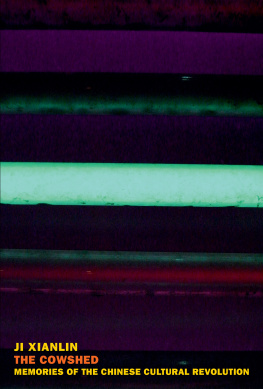
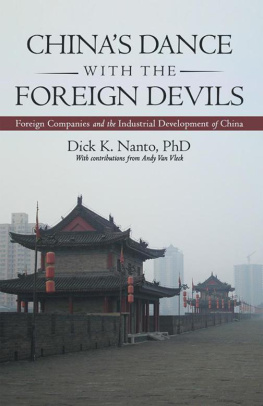

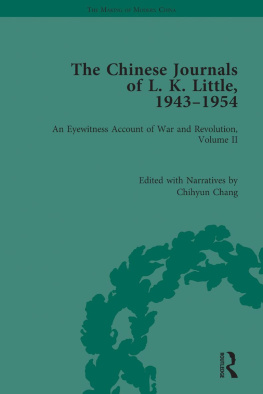
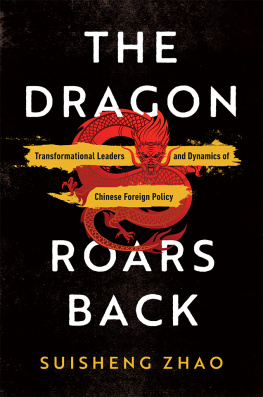

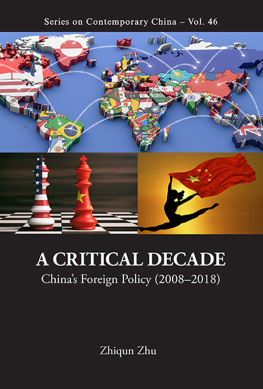
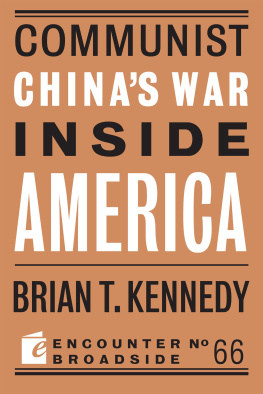

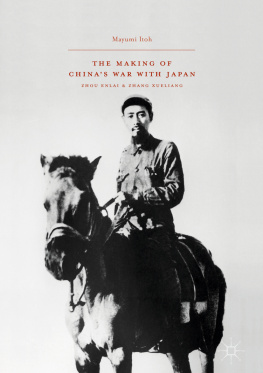
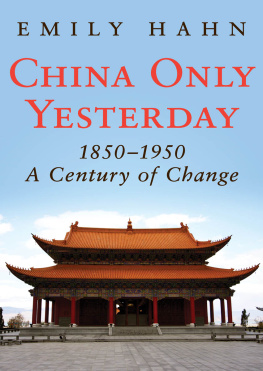
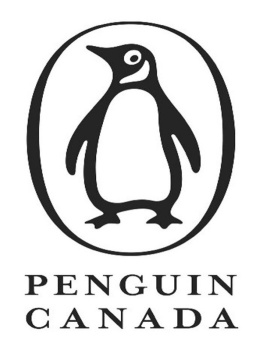
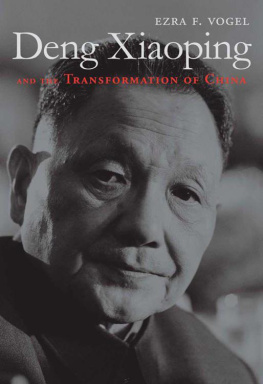



 Books that purport to tell the inside story of Chinas recent past range from wrenching tales of suffering during the Cultural Revolution, to speculative or even salacious biographies of Mao, to serious works of history. My story is none of those, yet it includes aspects of all of them.
Books that purport to tell the inside story of Chinas recent past range from wrenching tales of suffering during the Cultural Revolution, to speculative or even salacious biographies of Mao, to serious works of history. My story is none of those, yet it includes aspects of all of them.